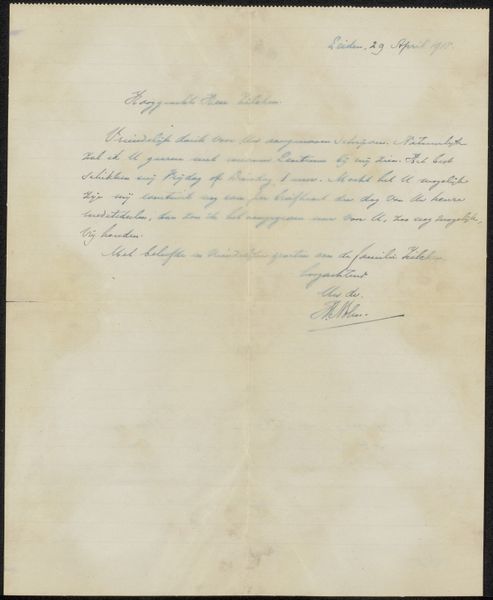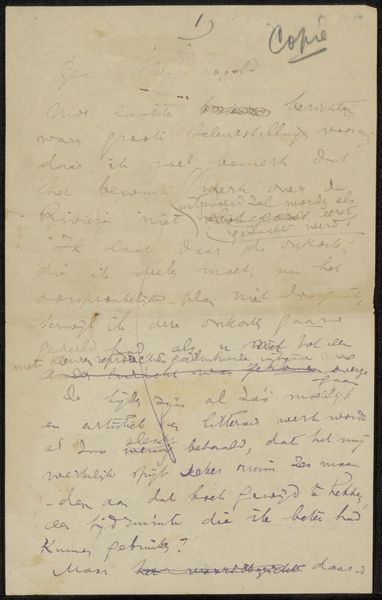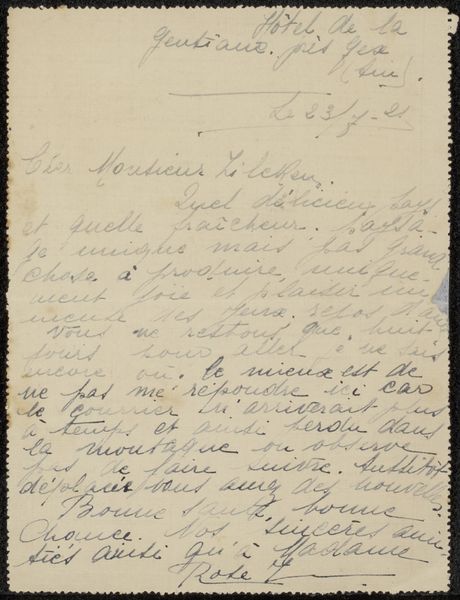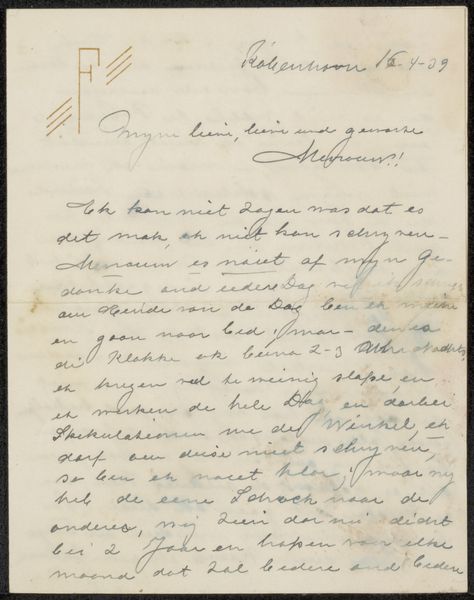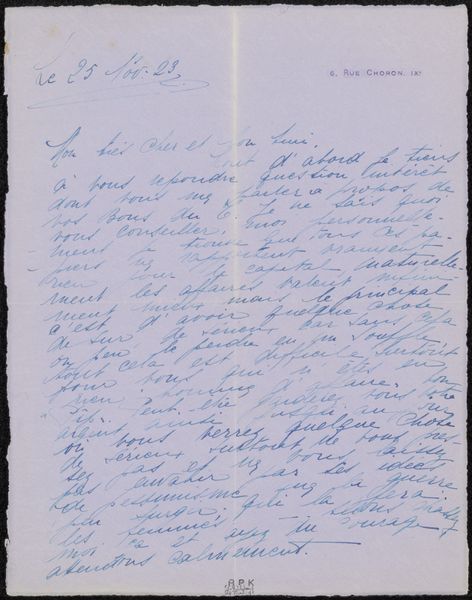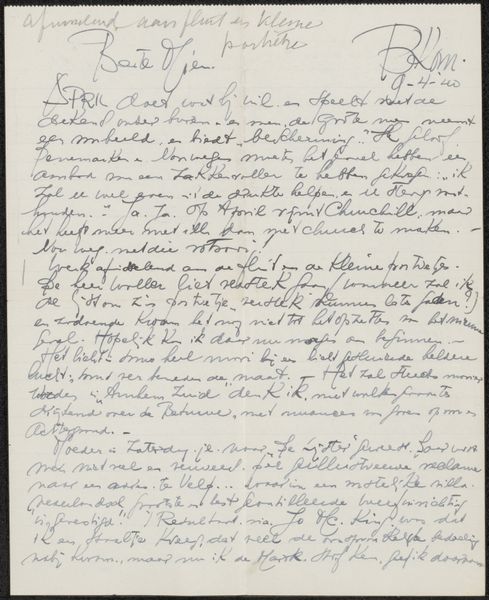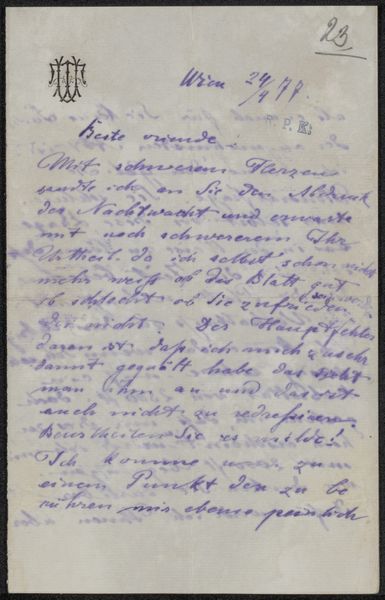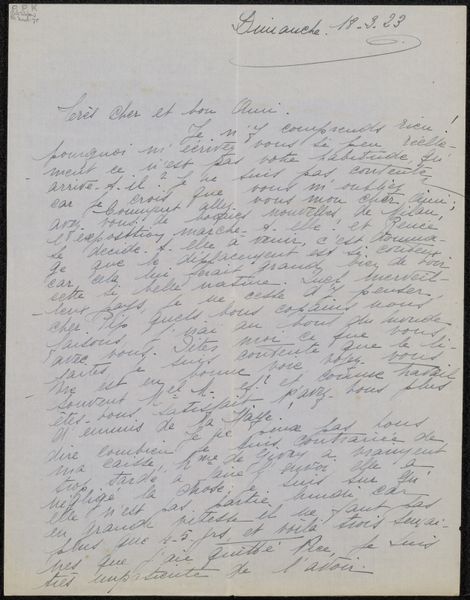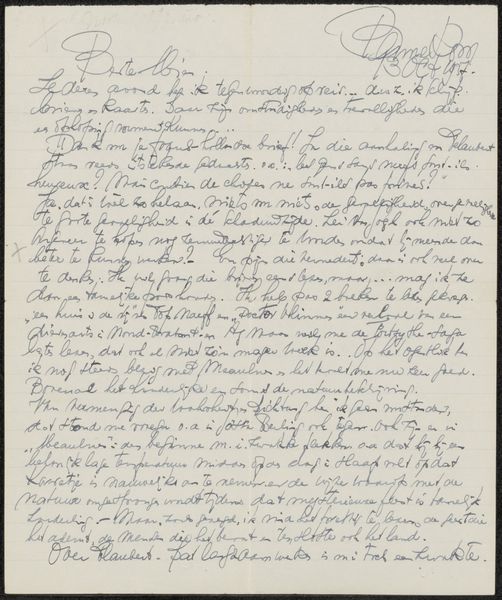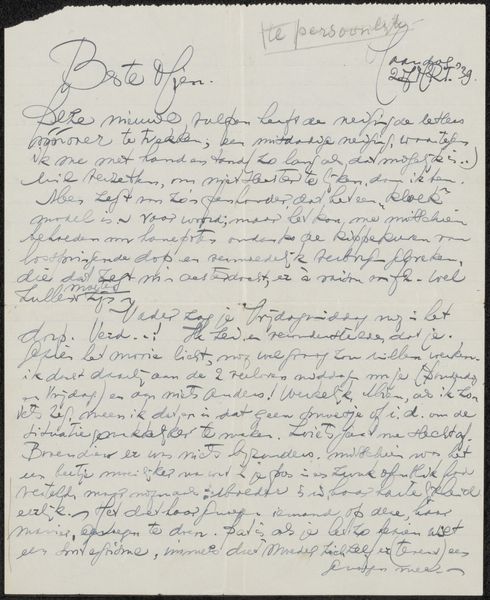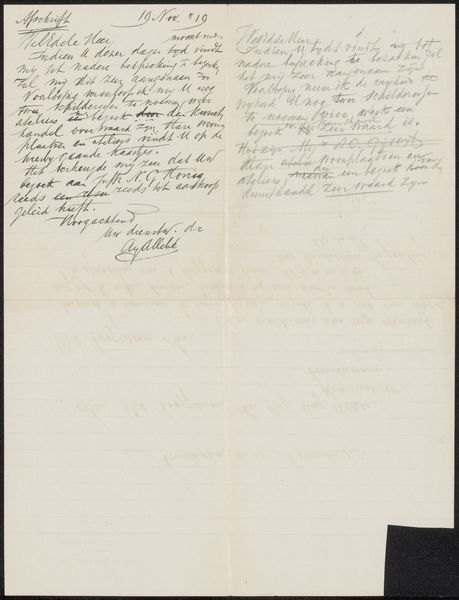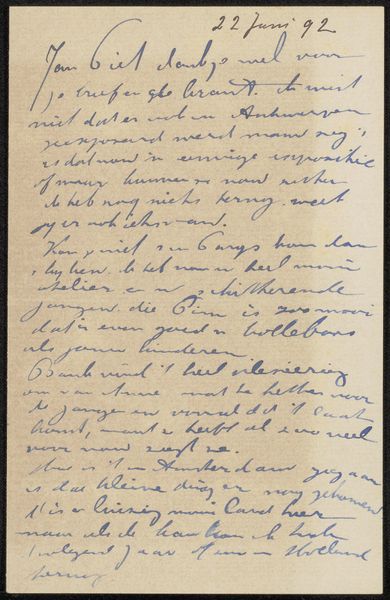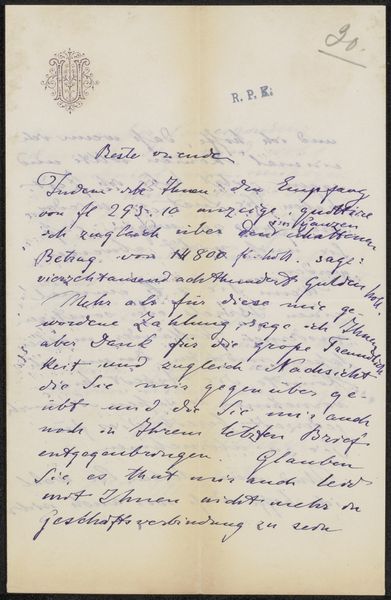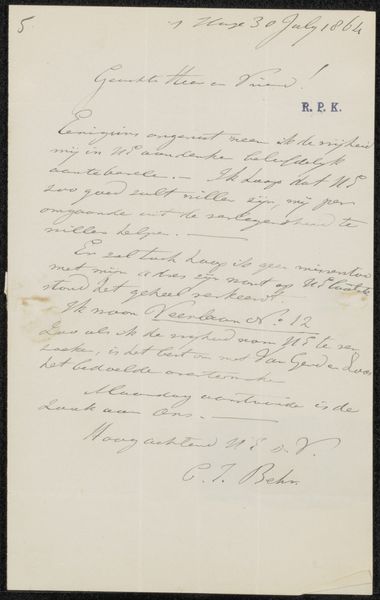
drawing, paper, ink
#
drawing
#
hand-lettering
#
sketch book
#
hand drawn type
#
hand lettering
#
paper
#
personal sketchbook
#
ink
#
hand-drawn typeface
#
fading type
#
ink colored
#
sketchbook drawing
#
sketchbook art
Copyright: Rijks Museum: Open Domain
Curator: This is "Brief aan Jan Veth," a drawing made with ink on paper by Jacoba Cornelia Jolles-Singels before 1886. I’m struck by how intimate it feels, like peeking into someone’s private correspondence or sketchbook. What stands out to you initially? Editor: The layered ink really grabs my attention. It gives a sense of depth, but it also seems almost haphazard. What do you make of the materiality and process here? Curator: Look at the paper itself - the torn edges, the visible aging. These material elements aren’t accidental; they speak volumes about the labor and time involved. This isn't a pristine finished product; it’s a working document, evidence of thought and creation. What does the act of handwriting itself, now so removed from our digital habits, convey in this context? Editor: It feels deeply personal and maybe… less polished than what we usually see framed in a gallery? I mean, the messiness makes me feel like I’m witnessing a spontaneous act. Curator: Precisely. Consider the social context. Jolles-Singels, as a woman artist in the late 19th century, might have had limited access to formal training or recognition. So, would you say this informs her creative practice? How might materials and processes shape her self-expression when traditional avenues were restricted? Editor: It suggests resourcefulness! Maybe using what's available and blurring lines between high art and craft became a statement in itself? It also appears there are overwritten portions. Is it common to reuse materials in sketches? Curator: Reusing and reworking materials highlights constraints faced by artists historically, pushing to re-evaluate notions of perfection and commodity in artistic practice. The layering reveals a kind of visual palimpsest, the evolution of the artist's thoughts directly embedded in the material. What new thoughts did we surface in discussing this artwork? Editor: I will look at sketches with an emphasis on materials in the future to determine potential messages related to access to materials for marginalized individuals and the beauty found within such challenges. Curator: Indeed. Paying attention to materials helps us view art as something made in and with the world, offering a unique lens into historical conditions and social relationships.
Comments
No comments
Be the first to comment and join the conversation on the ultimate creative platform.
